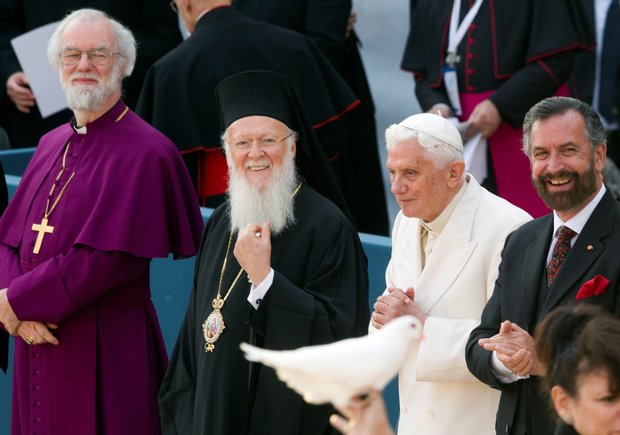Is summed up nicely by St. John in his first letter.
Beloved: The way we may be sure that we know Jesus is to keep his commandments. Whoever says, “I know him,” but does not keep his commandments is a liar, and the truth is not in him. But whoever keeps his word, the love of God is truly perfected in him. This is the way we may know that we are in union with him: whoever claims to abide in him ought to walk just as he walked.
Beloved, I am writing no new commandment to you but an old commandment that you had from the beginning. The old commandment is the word that you have heard. And yet I do write a new commandment to you, which holds true in him and among you, for the darkness is passing away, and the true light is already shining. Whoever says he is in the light, yet hates his brother, is still in the darkness. Whoever loves his brother remains in the light, and there is nothing in him to cause a fall. Whoever hates his brother is in darkness; he walks in darkness and does not know where he is going because the darkness has blinded his eyes.
The “status quo” in the Holy Places really does need to go, in this case. The “shackles of human history,” that have ensnared the parties involved there since 1853 (and even earlier), need to be left behind.
Perhaps it’s time that the Catholic contingent, represented by the Franciscans, sharing the sites with the Eastern Orthodox and Armenian Apostolic churches, do what the first of these two desert fathers did a long time ago, with wisdom, foresight, and agape:
Two old men had lived together for many years and they had never fought with one another. The first said to the other, “Let us also have a fight like other men.” The other replied, “I do not know how to fight.” The first said to him, “Look, I will put a brick between us and I will say: it is mine; and you will reply: no, it is mine; and so the fight will begin.” So they put a brick between them and the first said, “No, it is mine”, and the other said, “No, it is mine.” And the first replied, “If it is yours, take it and go.” So they gave it up without being able to find a cause for an argument.
Get along, or move along. Because we’ve been warned of the fruitlessness of banging gongs and clashing cymbals.
Just a few minutes ago, for reasons that I don’t even pretend to know, I picked up a book a friend had sent me two years ago. I had not opened it since setting it down shortly after it had first arrived as a gift. Just now, I opened it to where I had left my book mark and this is what I saw,
The practice of virtue means working from and strengthening the capacity for doing good deeds with ease. To do so we have to be constant in our religious observance and obedient to God’s will in each situation. One way to practice virtue—a way Christ taught by word and deed—is to try to take the lowest place so as not to be preferred in things that bring comfort, honor, and ease. We facilitate this practice by doing what we do for God and not looking at the satisfaction we may attain (and do it for that alone) or the dissatisfaction that is bound to come (and omit it for that reason only). In order to promote this doing of what we do for God and not looking at the satisfaction or dissatisfaction we derive, we should be more inclined to do the difficult rather than the easy, the rugged rather than the soft, the distasteful rather than the delightful.
I think I’ll go finish reading that old book after all. And I’ll keep reading another old book, with precepts like these, as well.
you should put away the old self of your former way of life, corrupted through deceitful desires, and be renewed in the spirit of your minds, and put on the new self, created in God’s way in righteousness and holiness of truth.
Amen.












